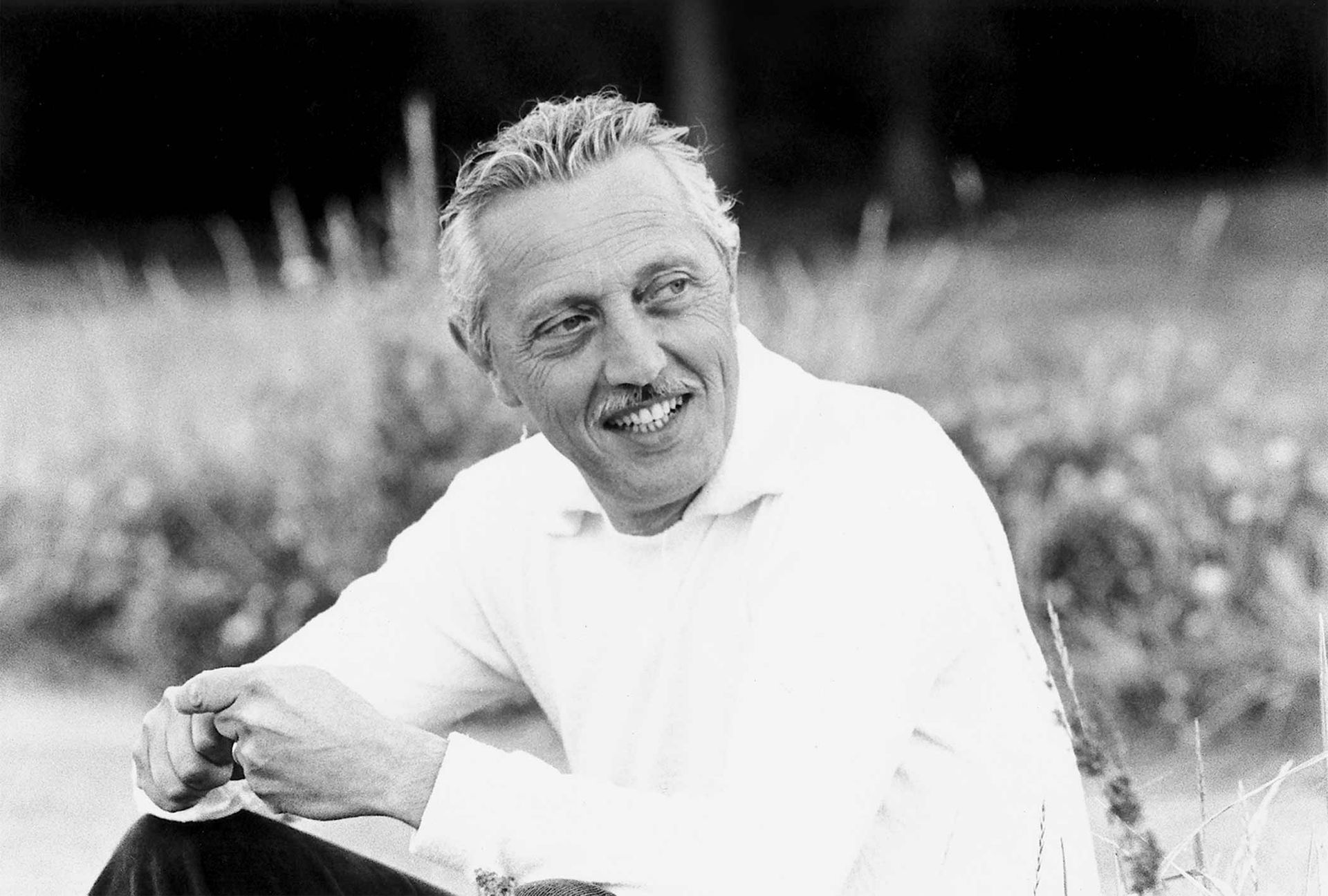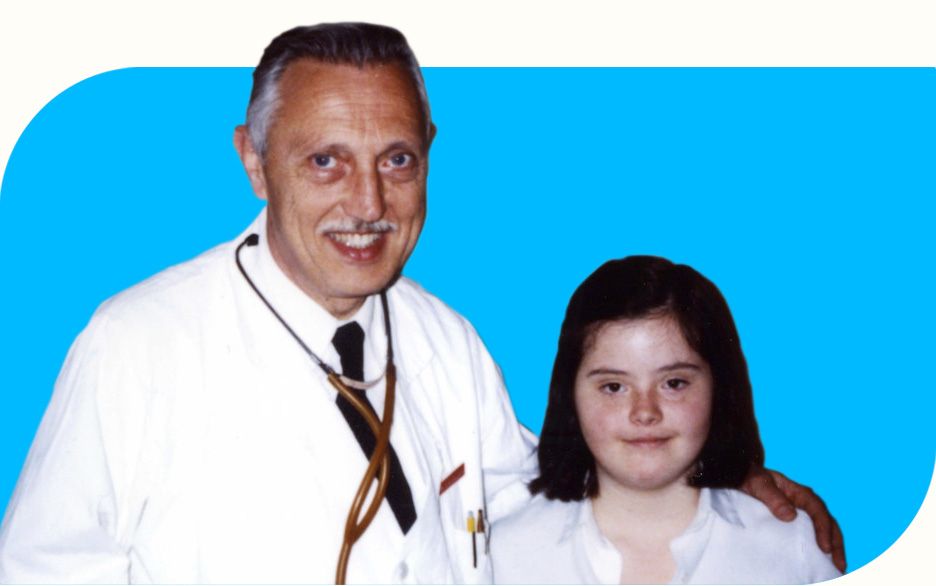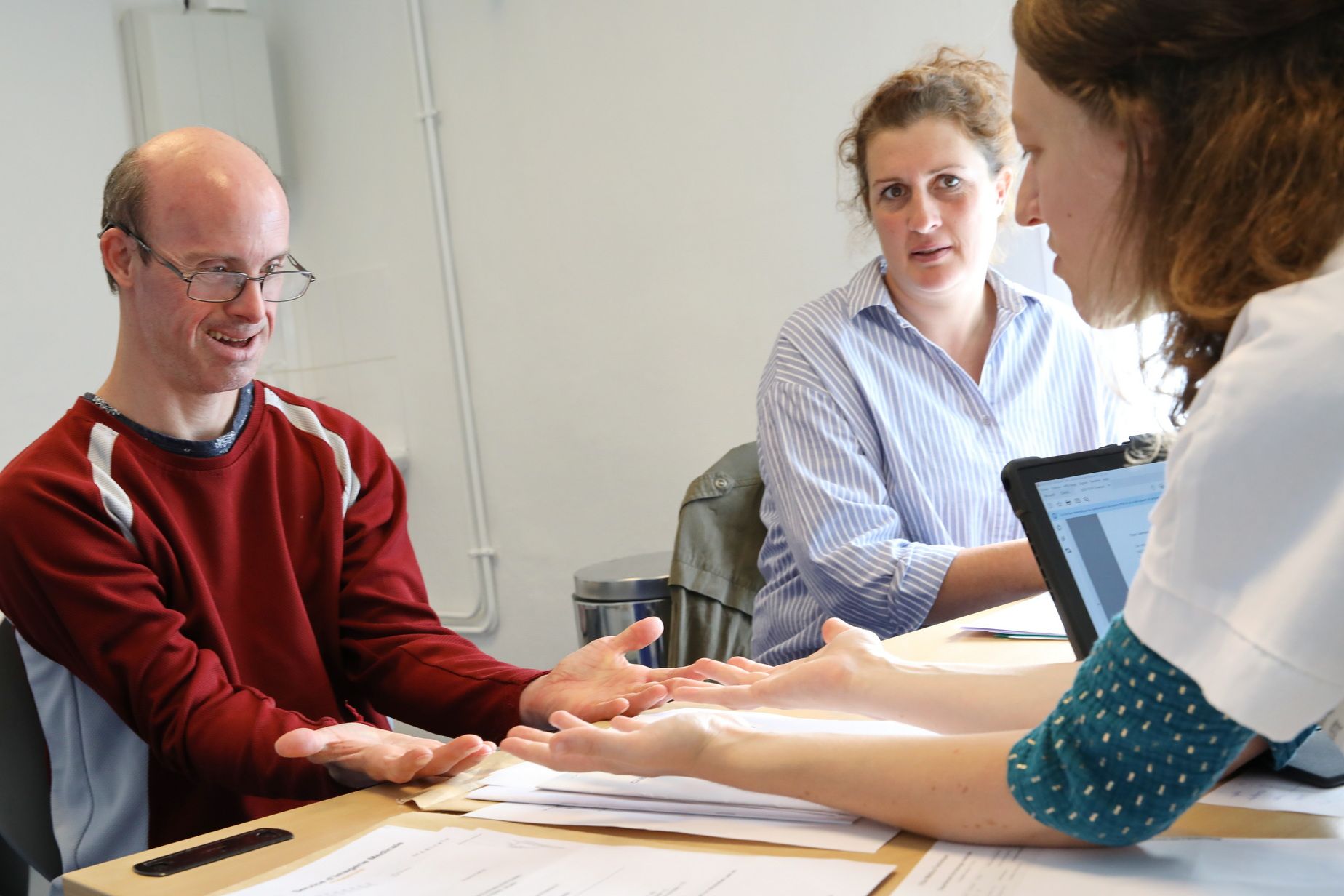
His Life
Dr. Jerome Lejeune
A father of modern genetics and physician by training, Dr. Lejeune discovered trisomy 21, the genetic cause of Down Syndrome, in 1958. His legacy was defined, however, by dedicating his life to the service of others.
At a time when specialized medical care was all but absent for those with Down syndrome and other genetic-based intellectual disabilities, Dr. Lejeune and his colleagues at the Hôpital Necker-Enfants Malades in Paris cared for more than 9,000 such patients and investigated over 30,000 chromosomal cases. To defend and promote the lives of those he served, Dr. Lejeune also delivered hundreds of speeches, interviews, and conferences globally as their advocate.
His Work
A man of science with a heart for others, Dr. Jerome Lejeune’s accomplishments are globally recognized.

1926
Jérôme Lejeune was born in Montrouge, a suburb of Paris.
1952
Studied medicine and became a researcher at the CNRS, eventually becoming an international expert on atomic radiation.
1958
Discovered the existence of an extra chromosome on the 21st pair. For the first time, a link was established between an intellectual disability and a chromosomal anomaly.
1962
Awarded the Kennedy Prize by President John F. Kennedy for his extraordinary discovery.
1964
Became the first chair of fundamental genetics at the Faculté de Médecine de Paris.
1969
Awarded the William Allen Memorial Award.
1974
Became a member of the Pontifical Academy of Sciences.
1981
Elected to the Académie des Sciences Morales et Politiques.
1983
Joined the Académie Nationale de Médecine. He was an honorary doctor, member or laureate of many other foreign academies, universities and scholarly societies.
1993
Received the Griffuel Prize for his pioneering work on chromosomal anomalies in cancer.
1994
Named the founding president of the Pontifical Academy for Life.
1994
On April 3, Jerome died, saddened at the thought that he could have done more for those he loved and served, “I have the impression I am abandoning them.”
2007
For his heroic witness, his case for beatification opened by the Roman Catholic Church.
Today
Foundations in France, Argentina, Spain and the U.S. continue his life’s work.
His Legacy
Today, the Jerome Lejeune Institute in Paris, France is a globally recognized center for the specialized care and research Dr. Lejeune spearheaded.

Since the Institute’s founding in 1997, Dr. Lejeune’s legacy of practical research, care, and advocacy has expanded to foundations in Argentina, Spain, and the US. Collectively, we are the largest private funder of research into genetic-based intellectual disabilities and we serve thousands of patients each year.


